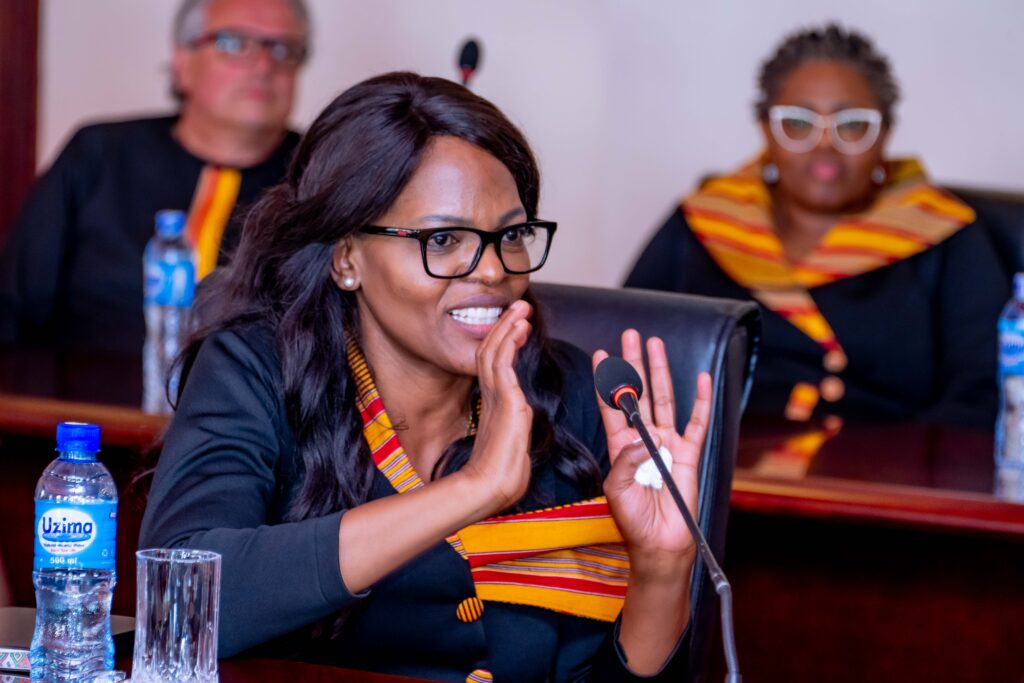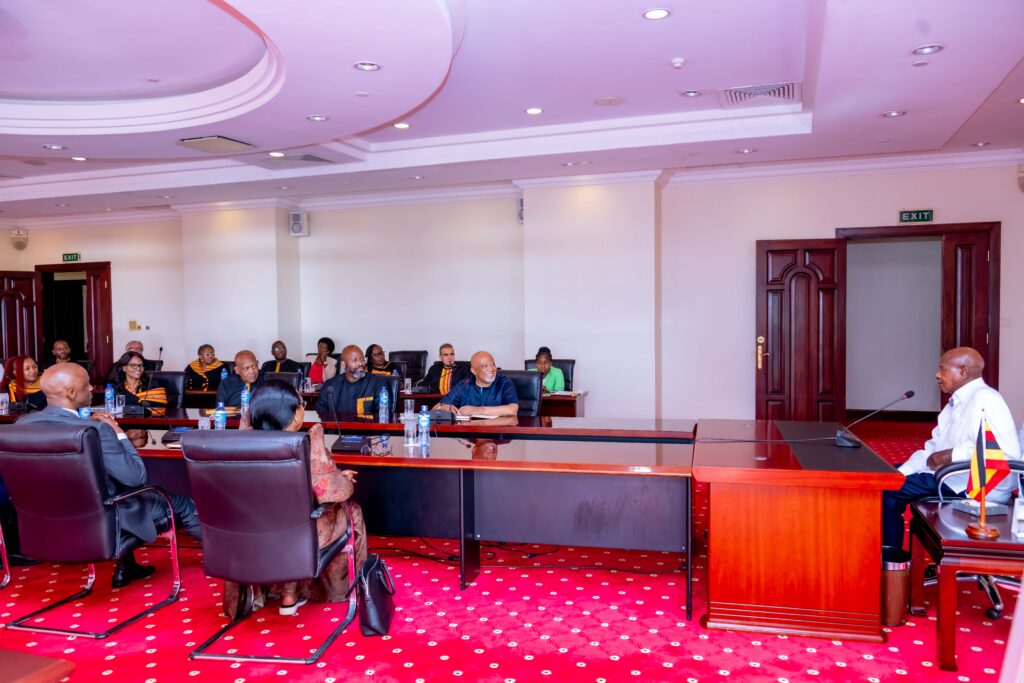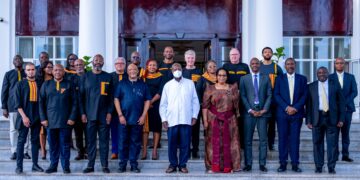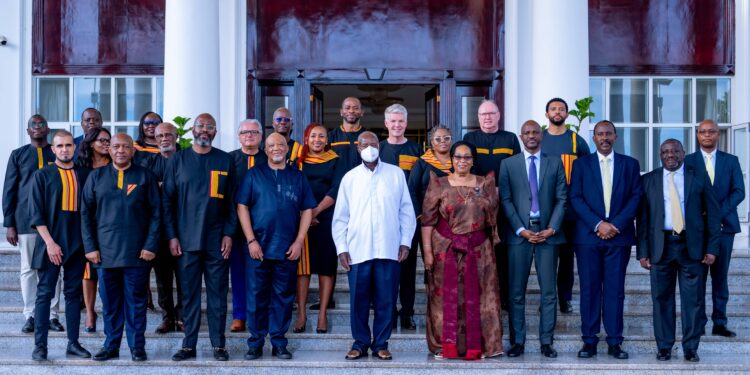President Yoweri Kaguta Museveni hosted a high-level delegation from MTN Group at State House, Entebbe, where he praised the telecommunications giant for its growth in Uganda and encouraged broader investment in key economic sectors and cross-border trade.
MTN Group, a leading South African multinational and one of the largest mobile network operators in the world has had a longstanding presence in Uganda.
President Museveni recalled the early days of the company’s entry into the market, sharing a personal memory: “I am glad that MTN has grown. I remember when it had just started, Mzee (Nelson) Mandela called me on a small phone. I do not remember who brought it, but that was the beginning.”

He emphasised the link between economic growth and the demand for communication services, noting that stronger incomes lead to higher phone usage and service uptake.
“If people have jobs and incomes, they will buy more phones and use them more. That’s why we must invest in the four key sectors of wealth and job creation—commercial agriculture, manufacturing, services, and ICT,” Museveni said. “The purchasing power per capita in Africa is still low, and to raise it, we must expand our economic base, not just operate in a narrow business sector.”
The President further called for increased cross-border investment to strengthen regional integration and boost intra-African trade. “You should discuss and see how you can intensify cross-border investment. That’s how we can strengthen intra-African trade and cooperation,” he urged.
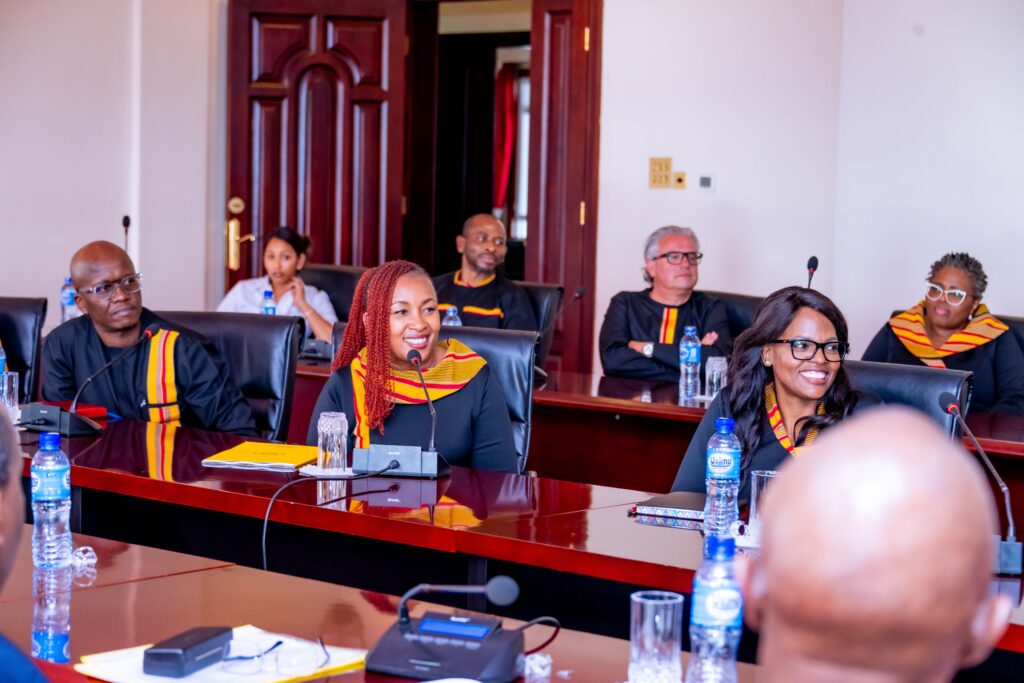
Reflecting on Uganda’s long economic journey, Museveni highlighted the challenge of moving the population from subsistence livelihoods into the money economy. “By 1962, when the British left, only 4% of Ugandans were in the money economy. The rest lived in villages, surviving on what nature provided. By 2013, only 32% of households were in the money economy. We had to involve the army to go and sensitise people. By 2021, we had reached 64%, and now only 33% remain outside,” he said.
He cited increases in coffee production and milk output as signs of rural transformation: “Coffee is now bringing in about 9 million bags annually, and people are beginning to taste the benefits of being in the money economy.”
Museveni also spoke on the issue of property fragmentation due to inheritance, which he identified as a threat to wealth retention. He suggested adopting models where families maintain collective ownership through corporate structures. “In some parts of the world, families have found ways to share ownership while keeping property intact. That’s another struggle we must win here,” he said.
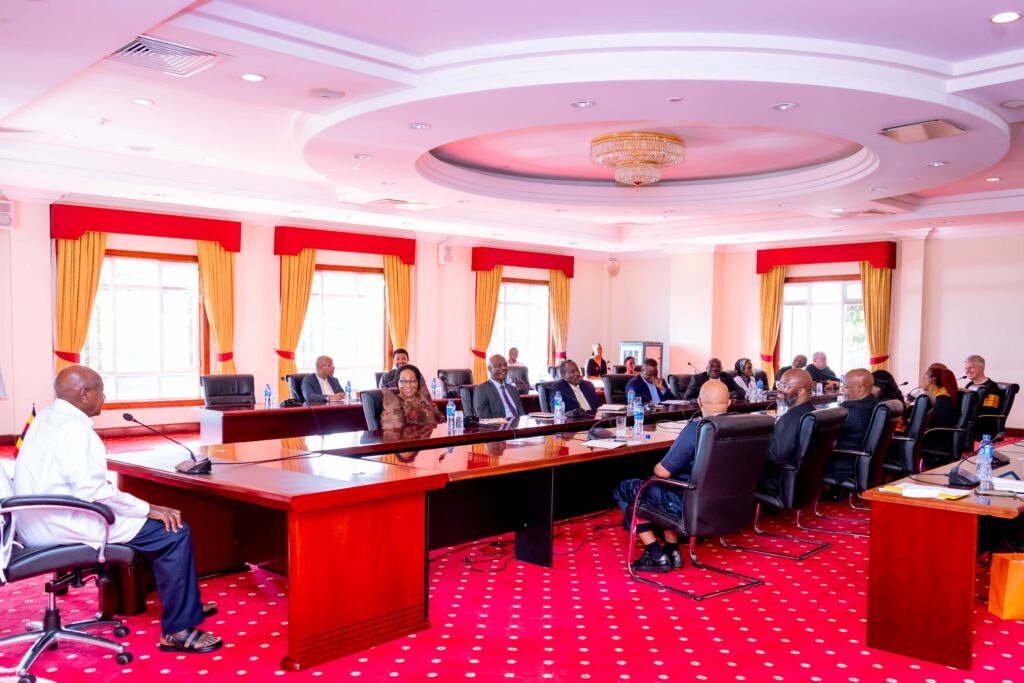
He contrasted Uganda’s development path with that of South Africa, highlighting how geography and climate influenced socio-economic conditions. “In South Africa, many Africans were already involved in agriculture, but here in Uganda, life was so easy that people remained in subsistence farming. That’s the unique challenge we’re dealing with.”
Encouraging MTN and other investors, President Museveni underscored the potential in African industrialisation and intra-continental trade: “Explore manufacturing partnerships and take advantage of Africa’s emerging opportunities.”
MTN Group Chairman, Mr. Jonas Mcebisi, expressed gratitude for Uganda’s support and reaffirmed the company’s long-term commitment. “We just came today to say thank you very much for the support you have always given us. We have had excellent collaboration from the regulators, and MTN is not here for the short term; we are here for the long haul,” he said.
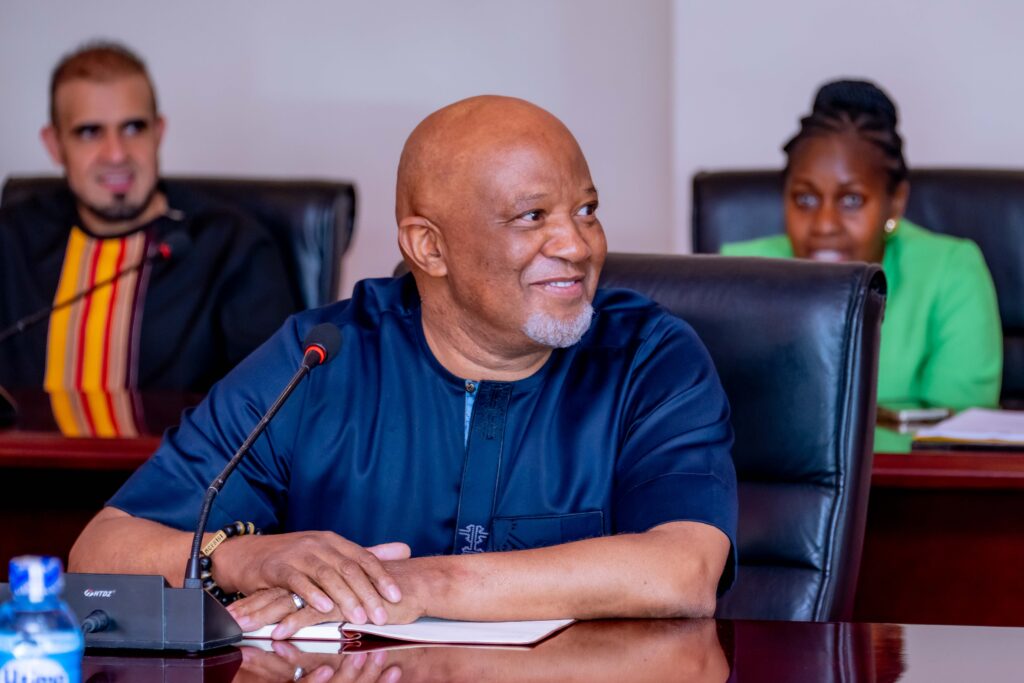
Mcebisi also shared MTN’s interest in enhancing business ties between Uganda and South Africa: “We believe there is real opportunity to help Ugandan businesses enter the South African market, and that is something we can explore further.”
He noted MTN’s scale in Uganda and across the globe: “We currently have about 22 million customers in Uganda, with approximately 12 million of them using real smartphones. Globally, MTN serves over 297 million customers, which gives us a broad network and capacity to support development.”
Also, present at the meeting were Hon. Joyce Nabbosa Ssebugwawo, Minister of State for ICT and National Guidance; Mr Ramathan Ggoobi, Permanent Secretary and Secretary to the Treasury; Mr John Musinguzi, Commissioner General of URA; and Mr George William Nyombi Thembo, Executive Director of the Uganda Communications Commission.
